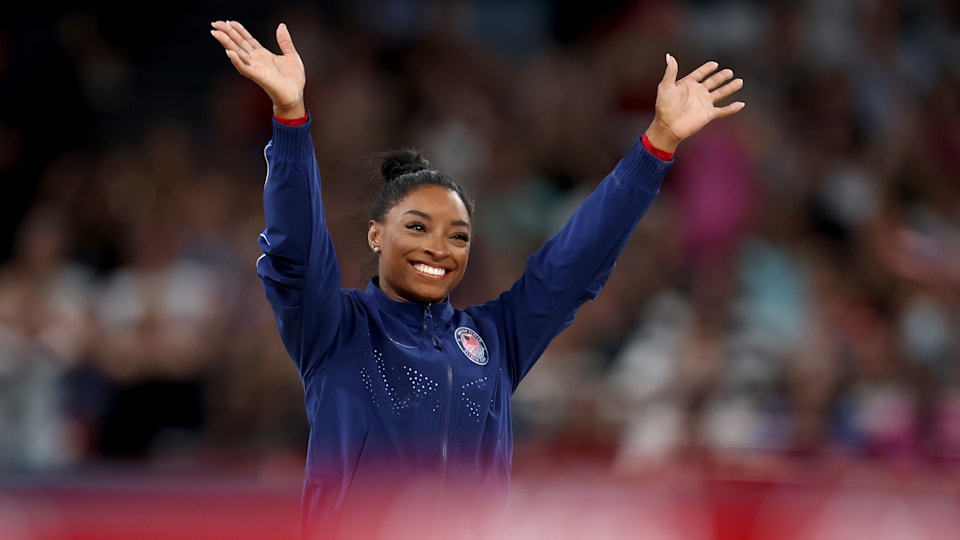Simone Biles: “After all these years putting the mental work in, it’s paid off.”

Three years ago at Tokyo 2020, gymnastics superstar Simone Biles sparked a global conversation about mental health and sports.
Over the past week at the Olympic Games Paris 2024, she’s put into practice the example that inspired so many millions across the globe.
That’s included therapy sessions before two of her biggest competitions in France, the women’s team and all-around finals, with her U.S. based therapist up in the middle of the night to work with the 27-year-old.
“I did see my therapist the other day…. We’re taking it day-by-day to see if I need extra therapy while I’m here, but so far, so good,” said Biles. “The Olympics is such a draining process for the athletes when it’s multiple days of competition, so you definitely have to be on top of your mental, as well as your physical. So as long as we’re doing that, then, we’re good.”
Biles withdrew midway through the women’s team final in Japan, prioritising her mental health as she dealt with a case of the ‘twisties’ - what gymnasts call when the body and mind fall out of sync.
She’s since said it was the inevitable conclusion to years of avoiding dealing with the trauma her sport – including abuse by the former U.S. team doctor – had brought her.
“You can’t compress trauma that much longer,” Biles said earlier this year on the popular American podcast Call Her Daddy. “I hate to be the person that blames it on something else because I’d rather blame it on like, ‘I have a hangnail. Sorry, can’t vault’ or whatever.”
Recovery hasn’t been – and still isn’t – an easy process.
At the time, Biles said felt she was walking away from a dream she had worked five years to achieve. Doubts filled her mind as she worried she’d never regain her otherworldly flips and twists, the ones that had come so naturally, for so long.
There were also the doubters online, filling her mentions with hateful tweets and posts accusing her of quitting on her team or failing her country.
“I was like, ‘This is a mental injury that they can’t see,’” Biles recalled. “Because they couldn’t see it, they couldn’t relate to it. They couldn’t grasp it.”
Three Olympic gold medals later in Paris, the American says the online chatter is… well, different.
“The negative comments, they’re painful after a certain point,” Biles admitted. “They hurt… but they’re really quiet now, so that’s strange.
“After all these years of putting the mental work in,” she continued, “it’s paid off.”
That’s worth more than gold.